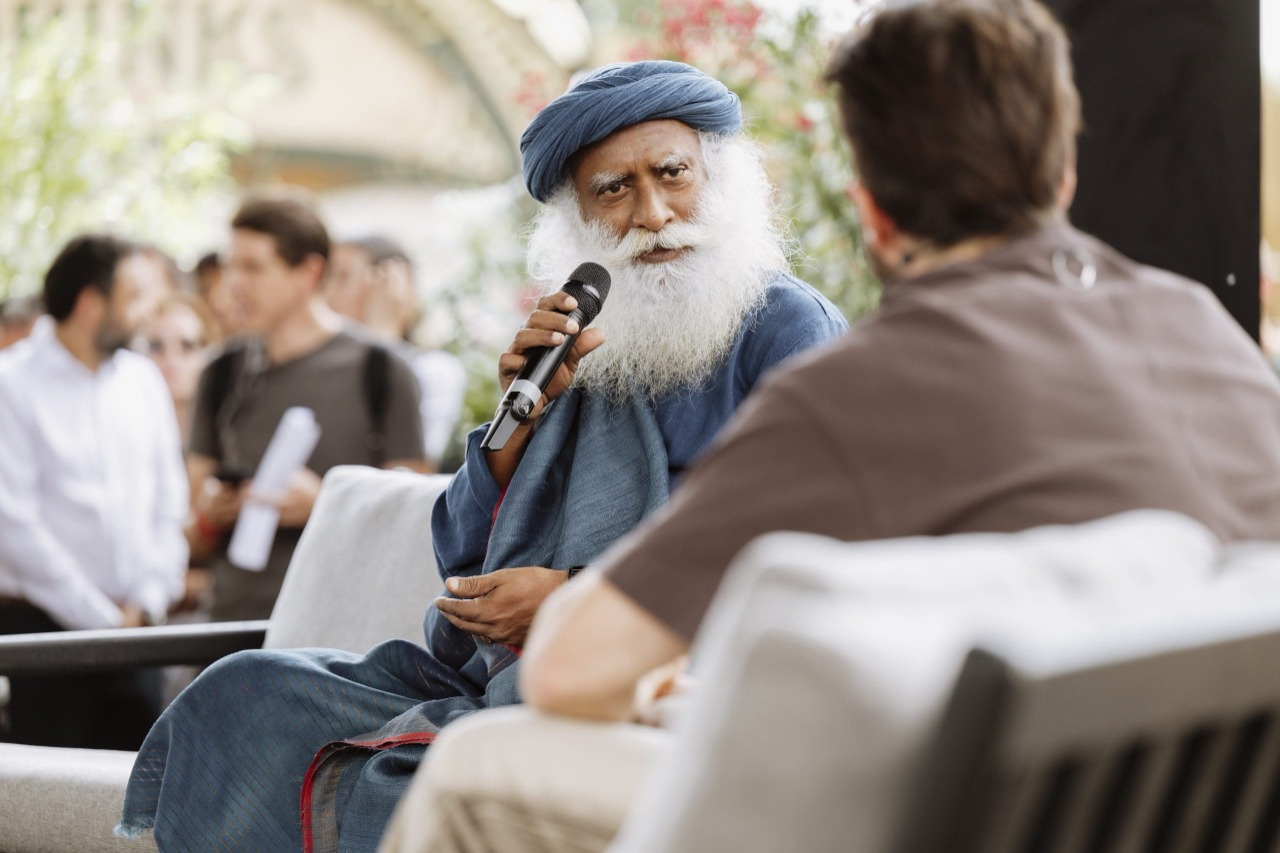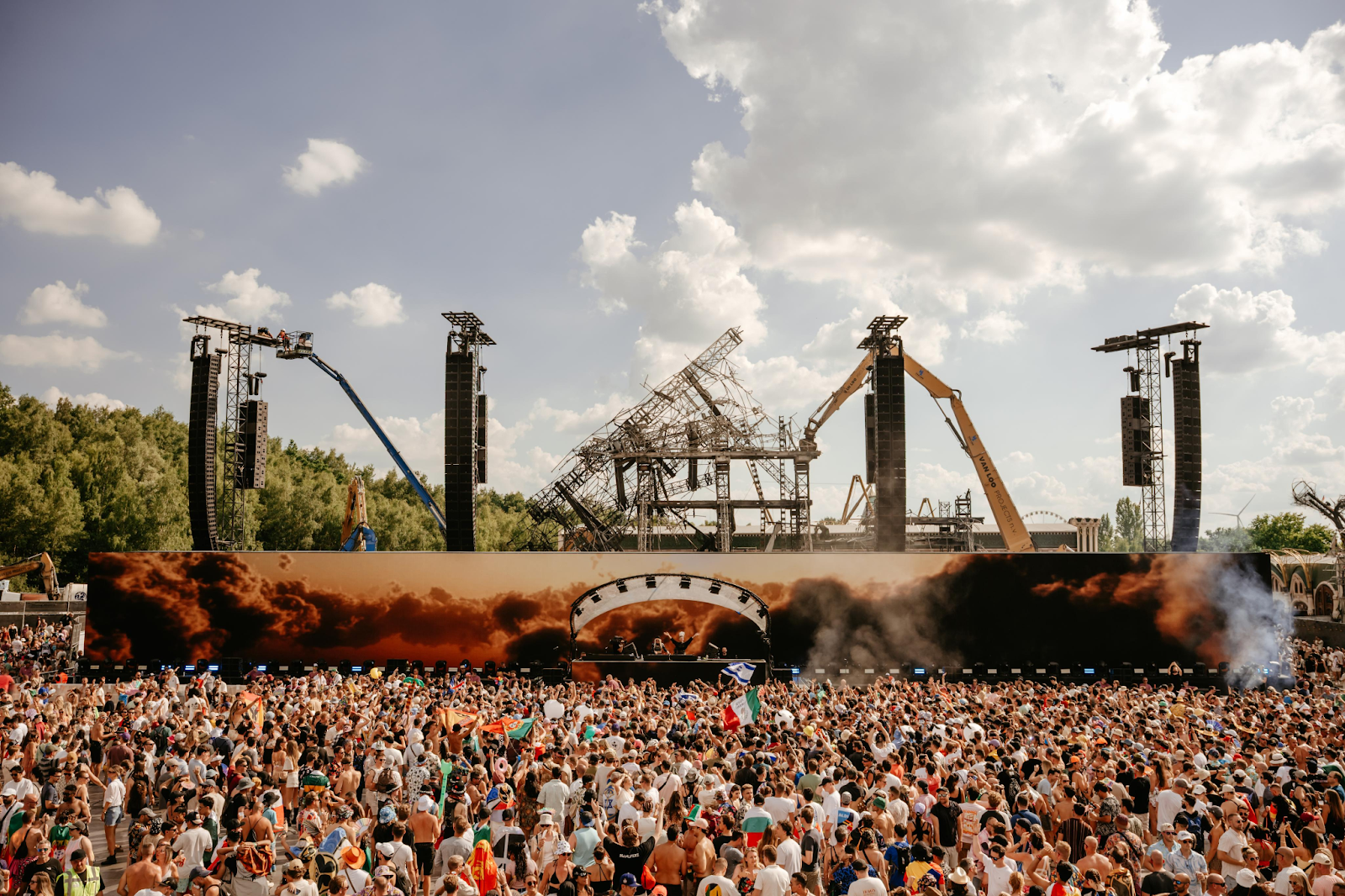
Tomorrowland Reaffirms Sustainability Commitments for 2025 at Love Tomorrow Summit
Festival announces new targets for 2030 and launches initiatives for greener operations

Tomorrowland has reaffirmed its commitment to sustainability with new goals presented during the Love Tomorrow Summit, held on the festival’s grounds in Boom, Belgium.
The summit brought together artists, industry figures, and sustainability leaders to discuss how large-scale events can reduce their environmental footprint while maintaining their cultural and social impact. DJ Mag Brasil was there to cover the event, and you can read now in this article from editor-in-chief Nazen Carneiro and DJ & reporter Nikka Lorak.
Since its first edition in 2005, Tomorrowland has grown into one of the world’s most prominent music festivals. Alongside its expansion, organisers have increasingly invested in sustainability through its Love Tomorrow platform, which addresses environmental and social responsibility. At the 2025 Summit, organisers detailed progress achieved in recent years and set out measurable goals for the future, aligned with the UN Sustainable Development Goals (SDGs).

The festival’s strategy is built on five guiding values: Responsibility, Nature, Innovation, Health, and Respect. These values underpin initiatives such as reducing waste, transitioning to renewable energy, and rethinking mobility solutions for international visitors. According to Tomorrowland, these measures are not limited to symbolic actions but aim to set practical standards for the global events sector. See the video from DJ Mag Brasil’s with DJ & reporter Nikka Lorak:
Among the measures introduced, Tomorrowland confirmed the rollout of RFID-enabled smart cups, designed to reduce single-use plastics. Following their initial implementation at Tomorrowland Winter in France, these reusable cups will be used at the Belgian edition from 2025. Additional infrastructure investments include high-capacity wash stations capable of cleaning up to 500,000 cups per day.
Organisers also highlighted progress in recycling: in 2024, 48% of festival waste was recycled, with a target of reaching 70% by 2030. New technologies such as AI-powered smart bins, deployed at the DreamVille campsite, are helping improve sorting rates and engage visitors through interactive gamification.
Other goals include reducing Scope 1 and 2 greenhouse gas emissions by 75% by 2030 (based on a 2023 baseline) and cutting Scope 3 emissions by 30%. Energy use across all events is expected to transition to 100% renewable sources, while mobility emissions will be reduced by 50% compared with 2023 levels.
“The summit shows that Tomorrowland is moving beyond being just a festival. It’s about creating systems that allow music, community, and sustainability to coexist,” said DJ and producer Nikka Lorak, who attended the event and reported on the Summit.
Beyond environmental measures, Tomorrowland has expanded its sustainability programme to include social initiatives. The Camp2Camp project reduces waste by providing festivalgoers with rental tents and equipment, while also creating job opportunities for young people and asylum seekers. Other projects include fashion collections made with organic cotton supporting farming families in India, and food redistribution schemes that transform surplus ingredients into meals for local communities.

The festival has also committed to biodiversity protection, pledging that all Tomorrowland events will have dedicated management plans by 2030. Around 85 hectares of fauna and flora habitats are expected to be regenerated as part of this programme.
Each summer, Tomorrowland builds a temporary city on the grounds of De Schorre. While this transformation creates a significant environmental footprint, the festival’s organisers say it also provides a unique opportunity to test large-scale sustainability strategies. Investments in permanent infrastructure, such as expanding the power grid to reduce generator use, are designed to have a lasting impact.
The Love Tomorrow Summit continues to serve as a space where sustainability experts, artists, and industry stakeholders can exchange ideas. Tomorrowland’s approach seeks to combine direct action at the festival with broader storytelling aimed at inspiring its global community, the “People of Tomorrow,” to adopt more sustainable practices in their everyday lives.

By 2026, every Tomorrowland department will be required to set an annual sustainability target, and by 2030, all key partners will be evaluated based on environmental, social, and governance (ESG) criteria. The organisation also aims for all crew, visitors, and artists to sign the Love Tomorrow Pledge by that date, reinforcing accountability across its ecosystem.
Tomorrowland’s progress will be closely followed as the festival seeks to meet its ambitious 2030 roadmap. For now, the 2025 edition will mark the beginning of new systems and technologies intended to balance large-scale cultural experiences with measurable environmental and social responsibility.

“Watching thousands of people celebrate while seeing concrete steps taken to reduce impact makes Tomorrowland stand out. It feels like a blueprint for how festivals can evolve in the years to come,” added Nikka Lorak.

Tomorrowland’s reaffirmed commitments at the Love Tomorrow Summit underline its ambition to position itself as a model of sustainable festival culture. With concrete measures ranging from waste reduction and renewable energy to biodiversity and social inclusion, the festival is embedding sustainability at the heart of its identity.
As the music industry continues to grapple with its environmental footprint, Tomorrowland’s strategy offers a reference point for other events worldwide. The challenge ahead will be to maintain consistency, transparency, and measurable progress towards the 2030 goals, while continuing to deliver one of the largest cultural gatherings in electronic music.
Tomorrowland’s reaffirmed commitments at the Love Tomorrow Summit underline its ambition to position itself as a model of sustainable festival culture. With concrete measures ranging from waste reduction and renewable energy to biodiversity and social inclusion, the festival is embedding sustainability at the heart of its identity.
As the music industry continues to grapple with its environmental footprint, Tomorrowland’s strategy offers a reference point for other events worldwide. The challenge ahead will be to maintain consistency, transparency, and measurable progress towards the 2030 goals, while continuing to deliver one of the largest cultural gatherings in electronic music.
Latest Posts

Jumeirah’s new artsy escape. A curated blend of specialty coffee, modern dining, and a creative atelier. Slow down, create, and find your calm.

From rooftop Pilates under the stars to floating sound baths at the Burj Al Arab, discover the best wellness events in Dubai this February to recharge your soul


